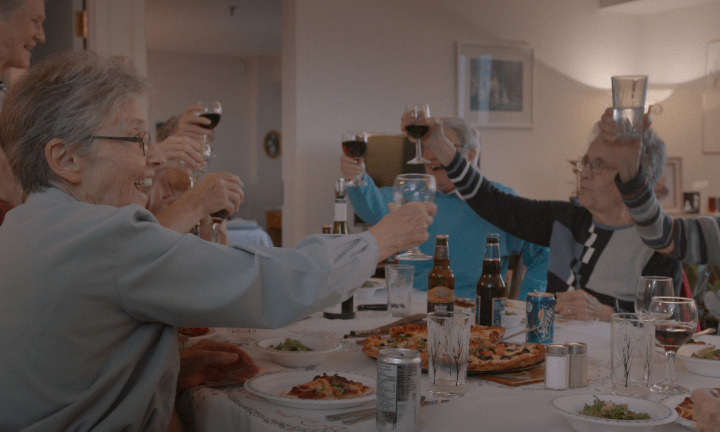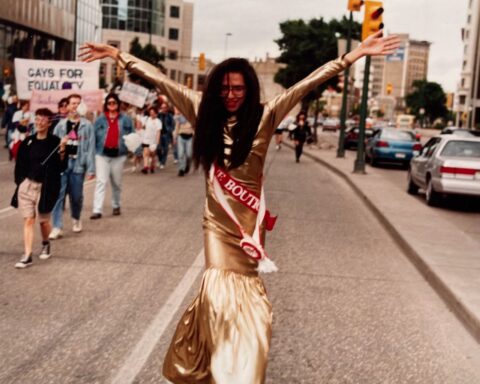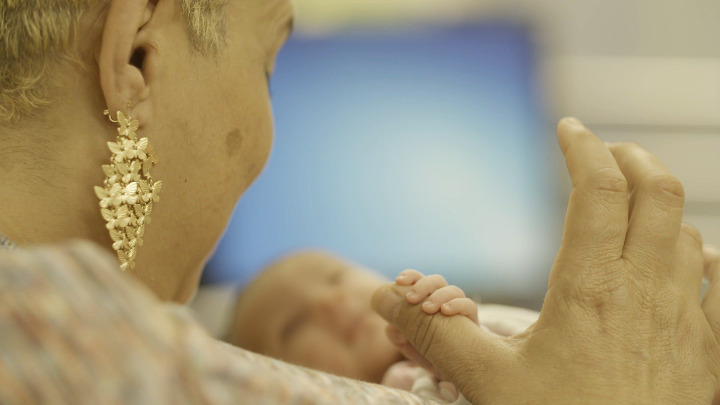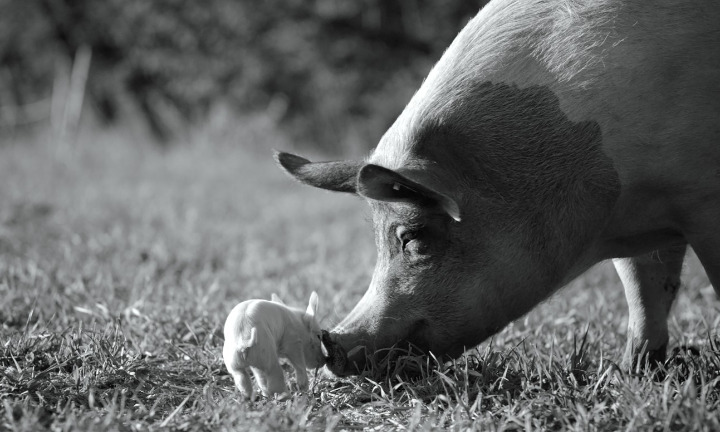Can a movement survive the death of its leaders? Director Maxime Faure addresses this question in his first feature Sisterhood. At its peak, Quebec’s chapter of the Society of Helpers of the Holy Spirit, an order of nuns engaged in social and political activism, had 35 members. At the time of filming, only eight remained. Though the nuns have never shied away from a struggle, they have chosen not to keep their community afloat beyond their lifetime, as they question their relevance in an increasingly secular society. Faure captures these remarkable women, now all in their eighties, as they prepare for the end of their mission and their lives.
As the community slowly disappears, the nuns begin to sort through their lives and the tokens they’ve collected along the way. Among these tokens are countless buttons from protests they have participated in over the decades, put away in boxes and pinned to wall coverings hung up in their living quarters. The causes they have supported over the years are vast and numerous, from anti-war movements, to Palestinian liberation, to pro-choice women’s rights.
“People would call us and be upset because they didn’t want religious people involved in politics. We were supposed to stay home and pray rather than get involved in politics,” says Gisele, one of the eight remaining Helpers. “They would condemn us to hell.”
Quebec has a tense and complex relationship with religion, largely due to its traumatic history with the Catholic Church. For many Quebeckers, women in particular, the Church was a force of oppression. The nuns, who dress in secular clothing, do not disagree with this interpretation of the Church. For them, their faith is not dependent on the institution, as they stand opposed to the hierarchical and patriarchal model it upholds.
On a francophone radio show, Helper Suzanne expresses her frustration with the constant focus and attention on the Pope. “It reinforces an ecclesiastical model which is pyramidal, centralized, and excludes women,” she says. She argues that Catholics, and the Christian community more broadly, should not wait to hear what the Pope has to say before they address issues within their communities, such as sexual assault. “How does it affect us? We’re not challenging our bishops. We’re not challenging the structures within Canada. We’re individualizing the problem.”
In the last few decades, the Catholic Church has received widespread criticism for enabling sexual misconduct, particularly towards minors. That being said, sexual assault is a pervasive societal problem that affects many sectors, both private and public, as the MeToo movement has highlighted in recent years.
It is because of movements like MeToo that the nuns do not feel pressured to preserve their own movement. They feel as though they served their purpose and other movements will carry on the fight for humanitarian causes. There is no reason why it must be them who do it. “What is important is that the values of justice are passed on,” Suzanne says during the Helpers communal dinner—to them, a family dinner.
Though the Helpers are passionate and vivacious when it comes to the values they believe in, the film is quiet and contemplative. It meditates on what it means to prepare for the end of one’s life and the procedures that requires. Faure shows the women going through their things, deciding what to keep and what to give up. A recurrent scene throughout the film shows the nuns checking each other’s blood pressure. Their faith provides them solace in leaving their corporeal form to pass on to the next realm, while their faith in humanity provides them solace that their values and good works will live on.
Sisterhood screens in select Quebec cinemas beginning June 11 and will be in national digital release June 25.












